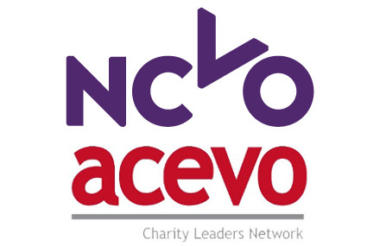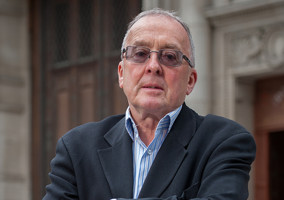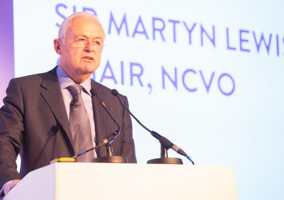Martyn Lewis, outgoing chair of NCVO, last week said it was the biggest frustration of his tenure that Acevo could not be persuaded to merge with his charity. David Ainsworth looks into why the merger didn't happen - and whether it should.
Last week Martyn Lewis, chair of NCVO, launched a pretty excoriating attack on Acevo for refusing to merge with his own organisation, accusing it of sandbagging a "necessary and sensible" merger. Lewis didn’t hold back. He made it apparent that he was frustrated with what he saw as a clear failure of leadership and resolve at Acevo.
Two days later Sir Stephen Bubb – chief executive of Acevo until earlier this year, and necessarily a leading component in that putative sandbagging – launched a robust counter attack. He said that Lewis’s memory of events is faulty and his rationale flawed. He said the chief executive of NCVO, Sir Stuart Etherington, didn’t want a merger, and implied that neither did anyone much else.
It’s an unusually strident and public bunfight, but it’s only a public bubbling over on an obvious fractiousness that always existed between the two bodies. The two bodies may share a building, but they are often far apart.
At the heart of the relationship have been Etherington and Bubb – two heavyweights with different styles. It’s hard to understand the debate about the two organisations without viewing it through their prism of their relationship.
Acevo and NCVO were set up for different purposes, but have found themselves doing a lot of the same things. Both leaders are driven by issues of policy – influencing government on behalf of charities. And because of that, the two bodies found themselves overlapping.
At the same time, they were contrasting in their approaches: Etherington is instinctively a behind-the-scenes lobbyist, Bubb much more vocal. The two men have an obvious rivalry, and evidently measure themselves against one another.
Why does NCVO want a merger?
It’s interesting to hear that NCVO has been actively pursuing a merger – or at least its chair has. This has certainly never been the public position of the organisation. NCVO has never so much hinted at wanting one before, despite enthusiastically conducting mergers with four other charities in the last few years.
Certainly a lot of people feel that NCVO and Acevo perform the same function - lobbying government on behalf of the sector - and that having two charities doing this makes it easier for the sector to be ignored or sidelined. NCVO evidently feels this.
NCVO has shown a lot of impatience with Acevo over the years. You get the impression that its staff sometimes felt it was amateur hour on the next floor. So my suspicion is that, at root, the desire for merger was because it would have been the easiest way to shut them up.
Of course, it’s questionable whether making life easier for NCVO is good for the charity sector as a whole. A bit of rivalry always keeps you on your toes.
Why didn’t it happen?
Lewis says that successive Acevo chairs have at least been willing to countenance merger, but the idea was scuppered elsewhere. Lewis evidently suspects Bubb, although he went out of his way to praise him during his speech.
Bubb was certainly a major barrier to merger. Chief executives are always the single biggest barrier to merger in the charity sector. If you’re a chief executive, and your charity mergers with another, you stand a 50 per cent chance of losing your job – more if your charity is the smaller one.
So when Bubb stepped down, the time was ripe for unification. But the Acevo board has taken it off the table. No wonder Lewis is annoyed.
Should there be a merger?
In part, it depends on your view on umbrella bodies. Is it a good idea for there to be lots – one for each function – or just one big one?
Having one umbrella body for the charity sector, rather than hundreds of little ones, would significantly cut costs and unify expertise in the same place.
On the other hand, one big charity could be unwieldy and slow. And if anything went wrong with it, we would be in trouble, because there would be no alternative, no replacement.
The “one big charity” model that so many propose always puts me in mind of communism. Wouldn’t it be more efficient if we unified all bakeries into one big bakery and put one man in charge of the supply of bread to London?
As ever, the answer is probably somewhere in between. There should be a lot of umbrella bodies, but fewer than we have.
In the case of Acevo and NCVO, the case for unification is initially relatively persuasive, because of the apparent similarity of their roles. One the face of it, it doesn’t make a lot of sense to have two bodies advocating on behalf of the sector. You could argue that it was justified while Bubb was there, with his unique approach, but not once he was gone.
If Acevo was only an advocacy group, this would have been a perfect time to merge. But advocacy is not its main role – or at least it shouldn’t be.
In practice, the reason to keep Acevo separate is not policy: it’s all the bits we don’t see as much of – the support and advice for chief executives.
Lewis evidently felt that NCVO could have taken this on; he suggested creating a chief executives unit within NCVO. But I don’t see this working. The evidence from the Volunteering England merger is not promising. After that merger NCVO was supposed to support volunteer managers as well as organisations, and it didn’t sit easily with them.
No, better to have an organisation dedicated to that support. Bubb is probably right that if Acevo merged with NCVO, a new body especially for chief executives would shortly be established.
What should Acevo do now?
If the support function for chief executives is the rationale for existence, Acevo needs to pull its socks up a bit. Support and training for chief executives has arguably been a bit neglected, of late, at Acevo. The balance sheet has suffered as a result, and Acevo probably needs to follow the excellent model of CFG in regard to its events and training.
In any case, it doesn’t really matter what anyone else thinks. The current argument is being conducted by men of the past – Lewis is going, Bubb gone. The current Acevo board has appointed a new chief executive and will announce her name shortly, so it’s safe to say there are no imminent plans for a merger.
The trustees and the membership of the two bodies are the only people who can decide this, and there the law of natural selection will prevail. If Acevo is abandoned by its members, it will not exist. If its members decide to keep it, then it must be meeting a need. If a group of chief executives are unhappy with Acevo and want a replacement, they will start one. If Acevo’s members want a merger, they will get one.
Related articles












